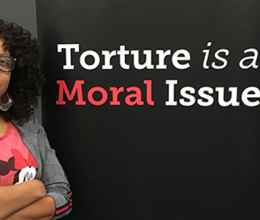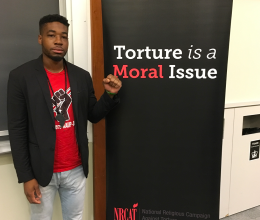
For decades, survivors of solitary confinement in New Jersey have said that prolonged isolation amounts to torture. An appeal to humanity that is echoed by the United Nations and civil rights groups around the globe.
They’ve shared their stories in the hopes that the brutal practice might finally end. Four years ago, after years of advocacy from survivors and activists, mental health experts and faith leaders, Gov. Murphy signed the Isolated Confinement Restriction Act (ICRA) – an identical bill to one Gov. Christie vetoed in 2014 – to only permit the use of isolated confinement in rare circumstances.
ICRA enacted important changes on paper, including imposing limits on the length of time a person could spend in solitary confinement and requiring active monitoring by corrections personnel and mental health professionals. A separate law – the Dignity for Incarcerated Primary Caretaker Parents Act – increased the accountability of the Department of Corrections (DOC) through the Office of the Corrections Ombudsman (OCO). That’s why, at the time of their passing, advocates praised the bills as steps forward in centering humanity within a still deeply flawed criminal legal system.
It was clear that ICRA was intended to protect incarcerated people from the extreme physical and psychological harm brought by solitary confinement. In the wake of the law’s enactment, the DOC eliminated housing units that used punitive isolation, like administrative segregation, and replaced them with so-called restorative housing units (RHUs).
In theory, people confined to RHUs are entitled to significant time out of their cell, interacting with other people – an essential countermeasure to any form of isolation. But recent findings from the OCO confirmed that despite these changes – and despite what the law mandates – the DOC is still subjecting people to prolonged isolation, putting hundreds of people in danger.
The OCO looked at self-reports from incarcerated people and the DOC’s own records to conduct a rigorous examination of how much time people confined in RHUs are actually spending outside of their cells. The report showed that most prisons with RHUs are failing to provide people with the required amount of time out of their cells.
In some instances, the DOC claimed that people had been offered time out of their cells but refused it. That assertion raises serious questions about whether the DOC is providing opportunities for people to leave their cells at appropriate times.
Even if the DOC were offering all the opportunities it claimed, and even if all those opportunities were meaningful, they still are insufficient under the law, and certainly fall far short of basic decency and humanity.
And these are not one-off concerns: the OCO report explained, “between January and April of this year, 1,029 individuals – more than half of those adjudicated guilty of an institutional charge – were sanctioned to spend a period of time in an RHU.” That means hundreds of people were confined in RHUs for drug charges or “for refusing to follow orders.”
In other words, the DOC’s failure to enforce the law subjects hundreds of people, many of whom have not been charged with assaultive behavior, to the harmful effects of prolonged isolation, endangering them and all New Jerseyans.
The faith leaders, civil and human rights organizations, and formerly incarcerated people who advocated for ICRA laid the foundation for ambitious humanity-centered change within the criminal legal system. They recognized that extreme isolation causes tremendous harm and makes us all less safe.
The Legislature and Governor Murphy did their part by passing ICRA. Now the DOC and county jails must ensure that the law lives up to its promise.
This piece was originally published by The Star-Ledger/NJ.com.


